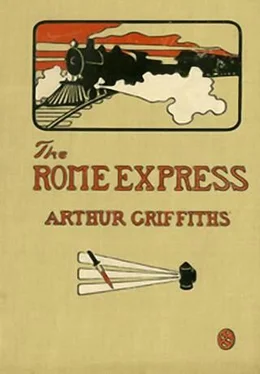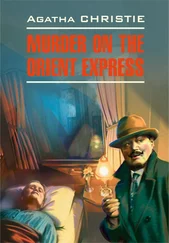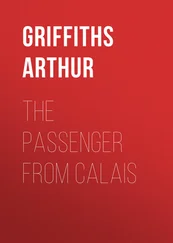Arthur Griffiths - The Rome Express
Здесь есть возможность читать онлайн «Arthur Griffiths - The Rome Express» весь текст электронной книги совершенно бесплатно (целиком полную версию без сокращений). В некоторых случаях можно слушать аудио, скачать через торрент в формате fb2 и присутствует краткое содержание. Жанр: Детектив, на английском языке. Описание произведения, (предисловие) а так же отзывы посетителей доступны на портале библиотеки ЛибКат.
- Название:The Rome Express
- Автор:
- Жанр:
- Год:неизвестен
- ISBN:нет данных
- Рейтинг книги:3 / 5. Голосов: 1
-
Избранное:Добавить в избранное
- Отзывы:
-
Ваша оценка:
- 60
- 1
- 2
- 3
- 4
- 5
The Rome Express: краткое содержание, описание и аннотация
Предлагаем к чтению аннотацию, описание, краткое содержание или предисловие (зависит от того, что написал сам автор книги «The Rome Express»). Если вы не нашли необходимую информацию о книге — напишите в комментариях, мы постараемся отыскать её.
The Rome Express — читать онлайн бесплатно полную книгу (весь текст) целиком
Ниже представлен текст книги, разбитый по страницам. Система сохранения места последней прочитанной страницы, позволяет с удобством читать онлайн бесплатно книгу «The Rome Express», без необходимости каждый раз заново искать на чём Вы остановились. Поставьте закладку, и сможете в любой момент перейти на страницу, на которой закончили чтение.
Интервал:
Закладка:
" Fichtre! " said the Chief, angrily; "and this is the first we have heard of it."
"Monsieur was much occupied at the time, and, indeed, then we had not heard of your inquiry."
"I notified the station-master quite early, two or three hours since, about 9 A.M. This is most exasperating!"
"Instructions to look out for this woman have only just reached us, monsieur. There were certain formalities, I suppose."
For once the detective cursed in his heart the red-tape, roundabout ways of French officialism.
"Well, well! Tell me about her," he said, with a resignation he did not feel. "Who saw her?"
"I, monsieur. I spoke to her myself. She was on the outside of the station, alone, unprotected, in a state of agitation and alarm. I went up and offered my services. Then she told me she had come from Dijon, that friends who were to have met her had not appeared. I suggested that I should put her into a cab and send her to her destination. But she was afraid of losing her friends, and preferred to wait."
"A fine story! Did she appear to know what had happened? Had she heard of the murder?"
"Something, monsieur."
"Who could have told her? Did you?"
"No, not I. But she knew."
"Was not that in itself suspicious? The fact has not yet been made public."
"It was in the air, monsieur. There was a general impression that something had happened. That was to be seen on every face, in the whispered talk, the movement to and fro of the police and the guards."
"Did she speak of it, or refer to it?"
"Only to ask if the murderer was known; whether the passengers had been detained; whether there was any inquiry in progress; and then-"
"What then?"
"This gentleman," pointing to Block, "came out, accompanied by another. They passed pretty close to us, and I noticed that the lady slipped quickly on one side."
"She recognised her confederate, of course, but did not wish to be seen just then. Did he, the person with Block here, see her?"
"Hardly, I think; it was all so quick, and they were gone, in a minute, to the cab-stand."
"What did your woman do?"
"She seemed to have changed her mind all at once, and declared she would not wait for her friends. Now she was in quite a hurry to go."
"Of course! and left you like a fool planted there. I suppose she took a cab and followed the others, Block here and his companion."
"I believe she did. I saw her cab close behind theirs."
"It is too late to lament this now," said the Chief, after a short pause, looking at his colleagues. "At least it confirms our ideas, and brings us to certain definite conclusions. We must lay hands on these two. Their guilt is all but established. Their own acts condemn them. They must be arrested without a moment's delay."
"If you can find them!" suggested the Judge, with a very perceptible sneer.
"That we shall certainly do. Trust to Block, who is very nearly concerned. His future depends on his success. You quite understand that, my man?"
Block made a gesture half-deprecating, half-confident.
"I do not despair, gentlemen; and if I might make so bold, sir, I will ask you to assist? If you would give orders direct from the Prefecture to make the round of the cab-stands, to ask of all the agents in charge the information we need? Before night we shall have heard from the cabman who drove them what became of this couple, and so get our birds themselves, or a point of fresh departure."
"And you, Block, where shall you go?"
"Where I left him, or rather where he left me," replied the inspector, with an attempt at wit, which fell quite flat, being extinguished by a frigid look from the Judge.
"Go," said M. Flocon, briefly and severely, to his subordinate; "and remember that you have now to justify your retention on the force."
Then, turning to M. Beaumont le Hardi, the Chief went on pleasantly: "Well, M. le Juge, it promises, I think; it is all fairly satisfactory, eh?"
"I am sorry I cannot agree with you," replied the Judge, harshly. "On the contrary, I consider that we-or more exactly you, for neither I nor M. Garraud accept any share in it-you have so far failed, and miserably."
"Your pardon, M. le Juge, you are too severe," protested M. Flocon, quite humbly.
"Well! Look at it from all points of view. What have we got? What have we gained? Nothing, or, if anything, it is of the smallest, and it is already jeopardised, if not absolutely lost."
"We have at least gained the positive assurance of the guilt of certain individuals."
"Whom you have allowed to slip through your fingers."
"Ah, not so, M. le Juge! We have one under surveillance. My man Galipaud is there at the hotel watching the Countess."
"Do not talk to me of your men, M. Flocon," angrily interposed the Judge. "One of them has given us a touch of his quality. Why should not the other be equally foolish? I quite expect to hear that the Countess also has gone, that would be the climax!"
"It shall not happen. I will take the warrant and arrest her now, at once, myself," cried M. Flocon.
"Well, that will be something, yet not much. Yes, she is only one, and not to my mind the most criminal. We do not know as yet the exact responsibility of each, the exact measure of their guilt; but I do not myself believe that the Countess was a prime mover, or, indeed, more than an accessory. She was drawn into it, perhaps involved, how or why we cannot know, but possibly by fortuitous circumstances that put an unavoidable pressure upon her; a consenting party, but under protest. That is my view of the lady."
M. Flocon shook his head. Prepossessions with him were tenacious, and he had made up his mind about the Countess's guilt.
"When you again interrogate her, M. le Juge, by the light of your present knowledge, I believe you will think otherwise. She will confess,-you will make her, your skill is unrivalled,-and you will then admit, M. le Juge, that I was right in my suspicions."
"Ah, well, produce her! We shall see," said the Judge, somewhat mollified by M. Flocon's fulsome flattery.
"I will bring her to your chamber of instruction within an hour, M. le Juge," said the detective, very confidently.
But he was doomed to disappointment in this as he was in other respects.
CHAPTER XV
Let us go back a little in point of time, and follow the movements of Sir Charles Collingham.
It was barely 11 A.M. when he left the Lyons Station with his brother, the Reverend Silas, and the military attaché, Colonel Papillon. They paused for a moment outside the station while the baggage was being got together.
"See, Silas," said the General, pointing to the clock, "you will have plenty of time for the 11.50 train to Calais for London, but you must hurry up and drive straight across Paris to the Nord. I suppose he can go, Jack?"
"Certainly, as he has promised to return if called upon."
And Mr. Collingham promptly took advantage of the permission.
"But you, General, what are your plans?" went on the attaché.
"I shall go to the club first, get a room, dress, and all that. Then call at the Hotel Madagascar. There is a lady there,-one of our party, in fact,-and I should like to ask after her. She may be glad of my services."
"English? Is there anything we can do for her?"
"Yes, she is an Englishwoman, but the widow of an Italian-the Contessa di Castagneto."
"Oh, but I know her!" said Papillon. "I remember her in Rome two or three years ago. A deuced pretty woman, very much admired, but she was in deep mourning then, and went out very little. I wished she had gone out more. There were lots of men ready to fall at her feet."
"You were in Rome, then, some time back? Did you ever come across a man there, Quadling, the banker?"
"Of course I did. Constantly. He was a good deal about-a rather free-living, self-indulgent sort of chap. And now you mention his name, I recollect they said he was much smitten by this particular lady, the Contessa di Castagneto."
Читать дальшеИнтервал:
Закладка:
Похожие книги на «The Rome Express»
Представляем Вашему вниманию похожие книги на «The Rome Express» списком для выбора. Мы отобрали схожую по названию и смыслу литературу в надежде предоставить читателям больше вариантов отыскать новые, интересные, ещё непрочитанные произведения.
Обсуждение, отзывы о книге «The Rome Express» и просто собственные мнения читателей. Оставьте ваши комментарии, напишите, что Вы думаете о произведении, его смысле или главных героях. Укажите что конкретно понравилось, а что нет, и почему Вы так считаете.












